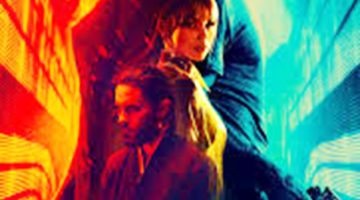By Tyler Hersko
Writing a big-screen adaption for the legendary “Ender’s Game” novel couldn’t have been any small task.
The science-fiction classic contains a venerable battleground of themes and subplots. For the uninitiated, the novel describes a near-future Earth where child prodigies are recruited into the military to fight an interstellar war against an insectoid alien civilization. Six-year-old protagonist Andrew “Ender” Wiggin is enlisted in the “Battle School” program, where students live regimented military lives and participate in mock wars with groups of other children.
Seemingly unassuming, the plot truly serves as a guide to writer Orson Scott Card’s startlingly dark interpretations of humanism, morality and the idea of the ends justifying the means.
Creating a film where much of the action is in the dialogue and within their speakers’ minds — never mind the necessity for casting numerous child actors capable of emulating the savagery, meticulousness and psychosis of the characters they’d be portraying —is certainly no easy task.
With that in mind, “Ender’s Game” director Gavin Hood really does deserve some credit. Despite the film’s numerous shortcomings, both as an adaption of the novel and as a standalone sci-fi thriller, it could have been much worse. It’s no “World War Z,” where the only thing shared between film and novel was the name. It isn’t “Elysium,” — a pretentious exploration of paper-thin plots, unlikable characters and a ceaselessly negative view of humanity — either.
Though several major portions of the novel are either glossed over or changed entirely in the most infuriating of fashions, the core of “Ender’s Game” is, thankfully, very much intact. Ender is still wracked with isolation and troubled by his herculean responsibilities. His brother, Peter Wiggin, is still a sociopathic bully, and fellow Battle School student Bonzo Madrid is still a deplorable little shithead.
The film’s cast does a remarkable job of bringing the series’ characters to life. Asa Butterfield and Harrison Ford, whom portray Ender and Battle School’s head, colonel Hyrum Graff, respectively, deserve particular praise. With the exception of a few robotic lines and a moment or two of hasty delivery, the cast’s performances are both emotional and impressionable.
All the more disappointing, then, that the script does neither the cast nor the audience justice.
As mentioned, despite the terror of mankind’s predicted annihilation and the mounting threats of both interstellar and civil war, much of the action in the “Ender’s Game” novel was through words and thoughts. The writing was nothing short of masterful, but only the basest of details were translated to the film’s script.
Ender is still a tactical genius tormented by his inner demons, but that’s about it. His yearnings for normalcy are described in the shallowest of details, and his motivations can be summarized as, “well, I was born to do this, so fuck it, let’s get this over with.” Butterfield’s performance isn’t to blame; while he plays a soulless, brooding war hero quite well, it’s a shame that the script disallowed any of the character’s charisma to shine through the dreary world.
Ford’s portrayal of Graff is similarly held hostage by misguided writing. Graff’s personality and controversial actions in the novel are subject to much debate, but his film’s counterpart — that of a war-mongering xenophobe — is egregiously one-dimensional.
These issues could have been offset if it weren’t for the crucial liberties taken with the plot. While the gender swapping of Major Gwen Anderson and the premature appearance of Battle School trainee Bean are, in the greater scheme of things, relatively unimportant, several omissions from the novel have a grievous impact for both series fans and casual moviegoers alike.
The subtle nuances of Ender’s psyche, the friendships he formed and the impossible obstacles he and his army surmounted at Battle School are rushed beyond belief. The delicate formation of Ender’s jeesh — also known as his group, in layman’s terms — is covered with little more than a superficial “hi, what’s your name?”
The challenges Ender and his Dragon army overcame — which were among the most memorable scenes from the novel — are given a similar cold-shoulder. Ender acquires his army, a seconds-long montage ensues, and then it’s off to their final fight at the Battle School. The lack of elaboration is mystifying; one would think that the physical and mental deterioration and constant warfare that defined much of the novel would have translated perfectly to the cinema.
Instead, the film assumes that the audience knows what the hell is happening. It’s far from incoherent, but the complete lack of elaboration makes both the film’s scenes and characters seem unbelievably shallow. For those familiar with the series, important keys to the plot such as the word “salaam” and the idea of “the enemy’s gate [being] down” are almost grinningly included, but with an utter lack of context.
It doesn’t help that the political and social commentary of the books — such as the heinous exclusion of the Locke/Demosthenes subplot — was rejected entirely in favor of telling a more personal story.
Thankfully, the film’s action scenes do fare better, and besides a few overly porny shots of the Earth’s atmosphere, the cinematography is actually quite good. The simulated wars that take place in the Battle School and on the secret asteroid Eros are spectacles worth beholding, and the sinister “Mind Game” is nothing short of incredible.
Unfortunately, if you’re here for a standard sci-fi action flick, there just isn’t enough to make up for the subpar writing. Yes, it could have been worse — script be damned, the acting is good, and the production values are high — but it could have been so much more.
The film is as dark and melancholic as the novel it is based on, but the jarring pace and perfunctory characterization just makes the entire thing feel like a drag.
Tyler Hersko can be reached at thersko@http://archive.archive.nevadasagebrush.com.










